Vampire: The Masquerade - Swansong Review
PlayStation 5
Despite its many flaws, Vampire: The Masquerade - Swansong somewhat lives up to its promise to provide players with a wealth of decision-making opportunities and the repercussions and outcomes of those decisions.
Reviewed by Rayan on May 24, 2022
A new role-playing game based on the famous table-top world, Vampire: The Masquerade - Swansong, is released after Bloodhunt. New spin-offs or new adaptations of well-known brands usually confront significant difficulty meeting fans' expectations. The world of Vampire dug deeper in the Swansong, and it is Big Bad Wolf Studio's second attempt at a narrative-driven role-playing game after 2018's The Council.
Swansong differs from previous entries in the World of Darkness since it focuses on your decisions and how they affect the city's violent, unsuspecting residents. In the last 22 years, the Vampire: The Masquerade franchise has captivated players with various games. The IP is still alive, even though it has been slumbering in its coffin for 15 years. But is this the awakening the fans have been waiting for?

Vampire: The Masquerade - Swansong introduces us to a world where vampires have been absorbed into civilization and are part of a worldwide conspiracy called the Masquerade. Three of Hazel Iversen's bloodsucking henchmen have been summoned following a Code Red alarm, and we will be in charge of them. Vampires were slaughtered by a group of vampires led by Emem, Leysha, and Galeb.
As we would imagine, various concerns need to be handled diplomatically or via riddles. However, who is our enemy, and whom can we trust? Thanks to a dictionary of crucial terminology, clans, and characters Swansong provides, any player may theoretically retrieve this game's history. From the beginning, it is evident that prior knowledge of the cosmos and an interest in it are prerequisites since the introduction presupposes that the reader is familiar with at least some of the background information.
Instead of taking a measured approach at the beginning of the game, Vampire: The Masquerade - Swansong wastes no time plunging the player right into the action by placing them smack-dab in the middle of Code Red. However, rather than a stylish introduction, the present scenario is swiftly detailed against a soft background of Boston at night. The Masquerade is now taking place throughout the universe.
There are numerous distinct clans and varieties of bloodsuckers: from the Malkavian, who trend toward aristocracy but are completely crazy, to the Nosferatu, who are ugly but rule-abiding and strong. Each clan has its location and control over a particular region. In Swansong, you get it with the Camarilla, a fusion of numerous groups sheltering in Boston and their severe troubles.
Additionally, a rigid caste structure guarantees that every Longfang knows his position within the hierarchy. Prince Iversen sits at the top of the caste system and has summoned his three most essential retainers to an emergency meeting.
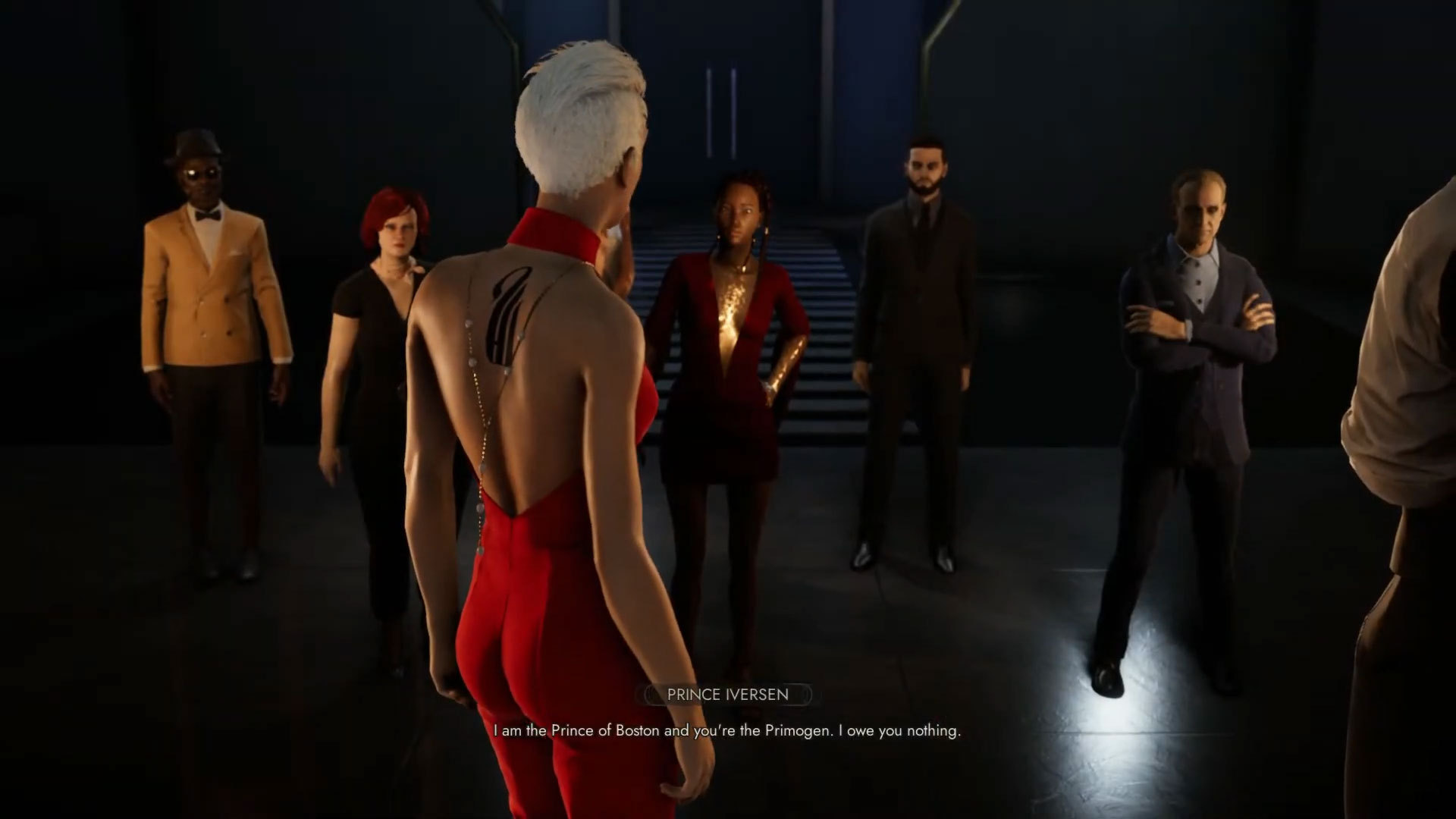
It's not like Bloodhunt, the newly released battle royale in the same world, in that Swansong doesn't include any combat. Instead, the mechanics are centered on a sense of mystery and investigation. To get a safe password, you'll need a combination of wit, influence, expertise, and talents that allow you to enter rooms, listen to crucial discussions, and persuade others that they should give their password.
Don't expect to see a lot of fighting. Vampire: The Masquerade - Swansong, like The Council, is primarily a story game with a strong emphasis on role-playing elements. One that is entirely novel on paper as it will serve as a framework for the many discussions and investigations during the game. Investing in a specific Discipline can allow you to locate a secret door or go back in time to relive particular events.
The ability to hack into computers and locks and persuade someone to give up information they'd typically keep secret may be achieved by making your Vampire a tech genius.
The Characters are defined by the three pillars of physicality, mentality, social bonding, rhetorical and intimidatory skills, and psychological and technological ability. To acquire what we want, the adventure will need us to learn about the many sorts of vampires and make choices based on our profiles and talents, adding a role-playing aspect while limiting our options.
This "battle" will be dialectical, in which we attempt to push, threaten, or persuade our interlocutor. For example, one can accumulate hunger via disciplines and targeting, which provides a temporary increase in skill levels for a short period and many other features. The journey is long, though. Three vampires in Prince Hazel's inner circle take on the role of protagonists in this three-player game.
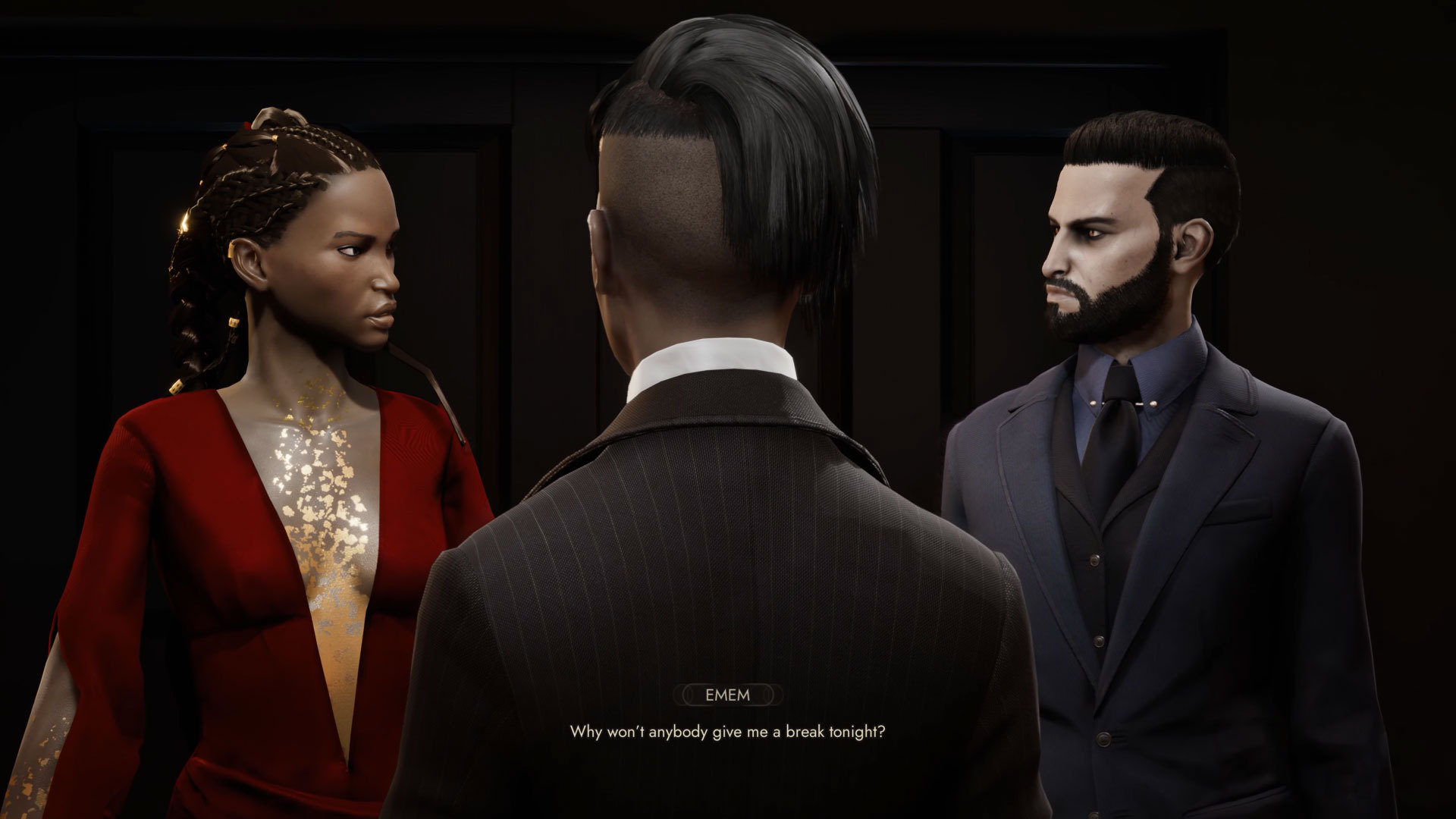
This takes a significant amount of time to get to the point where you can make a decision. Vampire society and the code red that just occurred need a thorough explanation for beginners, and then a crucial figure and their motives are introduced for the third time in a row. That's a lot to cover in the first hour of a game. No matter how many interactions there are, you can't help but think there was a better way.
Despite its association with the vampire universe, Vampire: The Masquerade - Swansong is primarily a detective narrative, and I believe it succeeds in this aspect. The narrative and character development aren't exactly out of the world, but how we go through each level and gather clues and materials to accomplish our goals feels satisfying.
When tracking your resources in the Vampire: The Masquerade - Swansong, your hunger isn't the only one that matters. A strong focus facilitates your character's ability to complete tasks. Eventually, you'll decide whether the game's three main protagonists will use hacking, persuasion, or object investigation skills. There is no reason you can't construct each character precisely the same way.
Players who desire the most interactions will distribute their points throughout the board, ensuring that they won't be able to master any one item. It's a shame that the skills aren't required for most of the game since it prevents the individuals from feeling different from one another outside of their abilities, which are distinct enough.
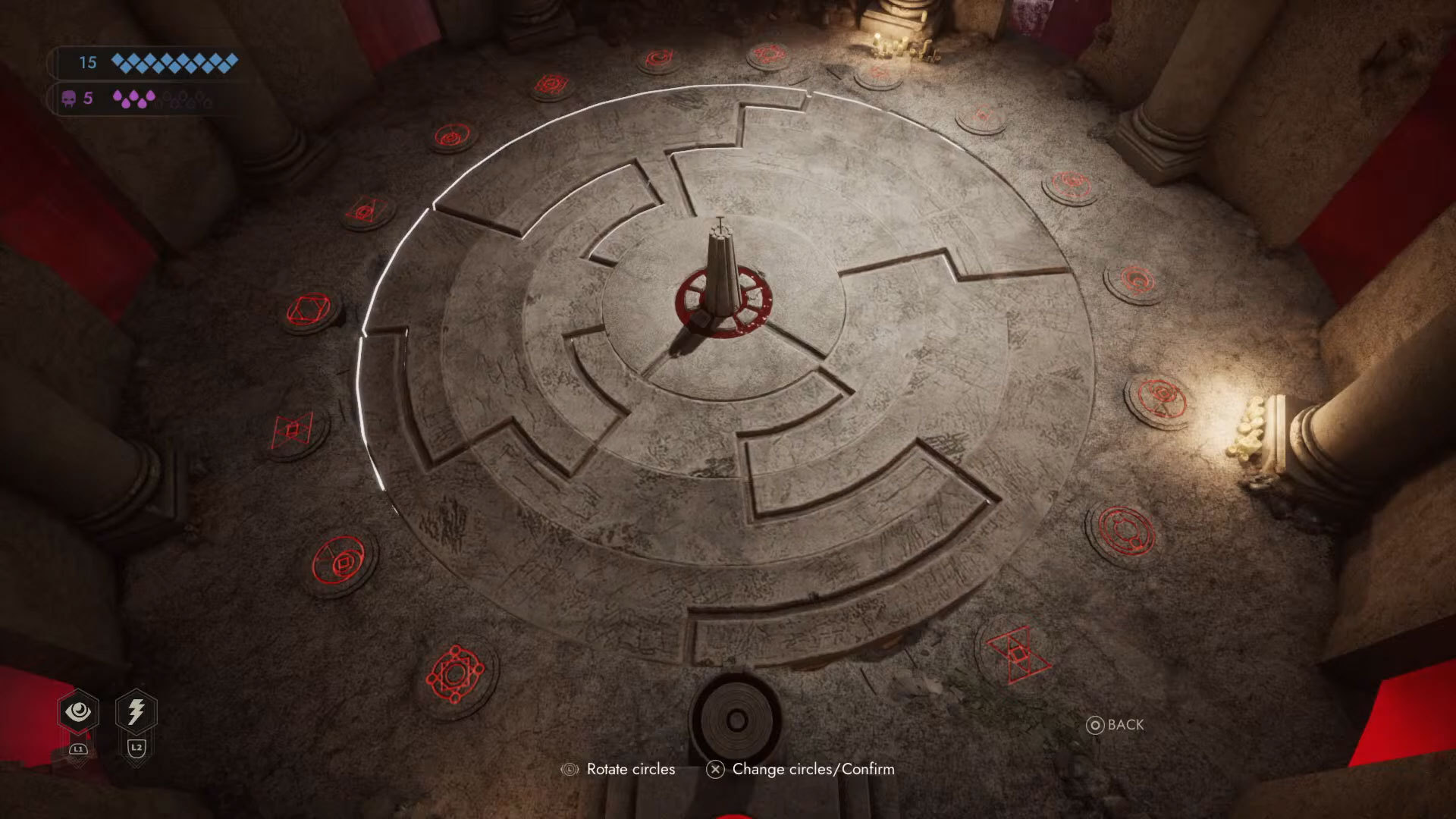
While the players aren't interacting with one another, puzzle-solving will take precedence over communication. For discovery, Vampire: The Masquerade—Swansong has sprinkled bits of paper and audio and visual clues all over the area in the form of puzzle suggestions. Finding clues to uncover a hidden compartment or hiding suspicious documents in the safe of an unwilling colleague are only two examples of these tactics that appear throughout the game.
In addition, players are rewarded for reading everything thoroughly in the game while concealing information from players who are only skimming the text to get a piece of information. As a result, you're likely to run across problems and be forced to explore those vast regions for a tiny bit of information.
The retracing required to complete certain situations may evoke memories of puzzles from the late 1990s for players who have a fondness for those games' more straightforward design. Once you finally get the solution you've been looking for after going through a series of actions, you'll feel like you've accomplished something significant.
Finally, as the genre implies, your choices will lead to many essential plots. They're usually easy to spot and wrapped into a story that's often enjoyable to follow. However engaging as the plot may be, it is still fairly linear. There is no straight path to begin a new chapter; your choices will typically lead to a definite outcome.
As a result, it's challenging to maintain a steady pace if you've got your sights set on a single objective. Sometimes, it's as simple as searching a room for something as simple as a bit of plastic that causes extended pauses of indecision. As an alternative, the scenes investigated are packed with additional activities, making it impossible to complete the game's objectives.
Even more so, you're typically allowed to go about without any specific guidance. You may also rely on a small number of generally practical problems that the characters' special skills will regularly solve.
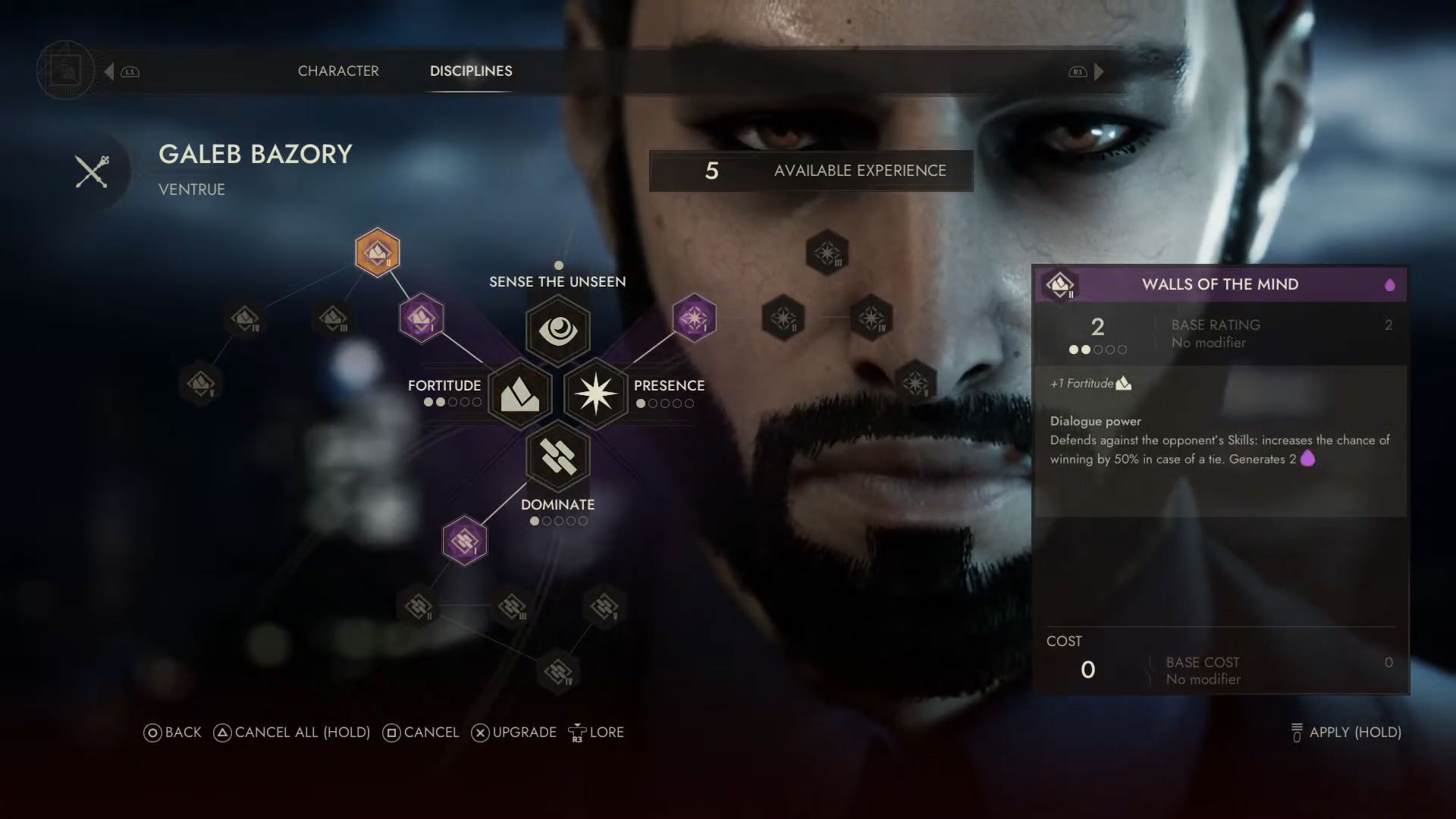
Even though solving puzzles is the most satisfying part of this game, it is also the most frustrating. The most significant issue with Vampire: The Masquerade—Swansong is that it lacks flair in its narrative, gameplay, tempo, or direction.
As we spend most of the time focusing on solving problems, the game forces us to explore every tiny bit of space and have conversations with NPSc, who often don't give any valuable information. Things get worse when you've wasted a long time looking for something in the wrong place. The lack of direction takes a toll on the frustration meter.
Increasing the number of NPCs who provide helpful information could mend this issue. In general, NPCs should have more important stuff to say or deliver clues since dialogue and inquiry are key components of the game. There are many opportunities to get information from others if most of those you come across don't have anything interesting to say.
The game hardly provides any room for taking risks and trying new things. The many environments that must be explored to progress through the game are seldom fascinating, diverse, or even intriguing; nonetheless, they are nearly always very gloomy. Reflection of a low budget for Vampire: The Masquerade - Swansong has significantly cut down on the number of stunning moments included in the game.
It is not so much in the creative or technical elements as it is in the case of animations. While most of the gameplay is spent in closeups and conversation when mannequin faces, with absolutely no reactions or lip-sync, tarnish the work performed in earlier areas, the uncanny valley comes into play.
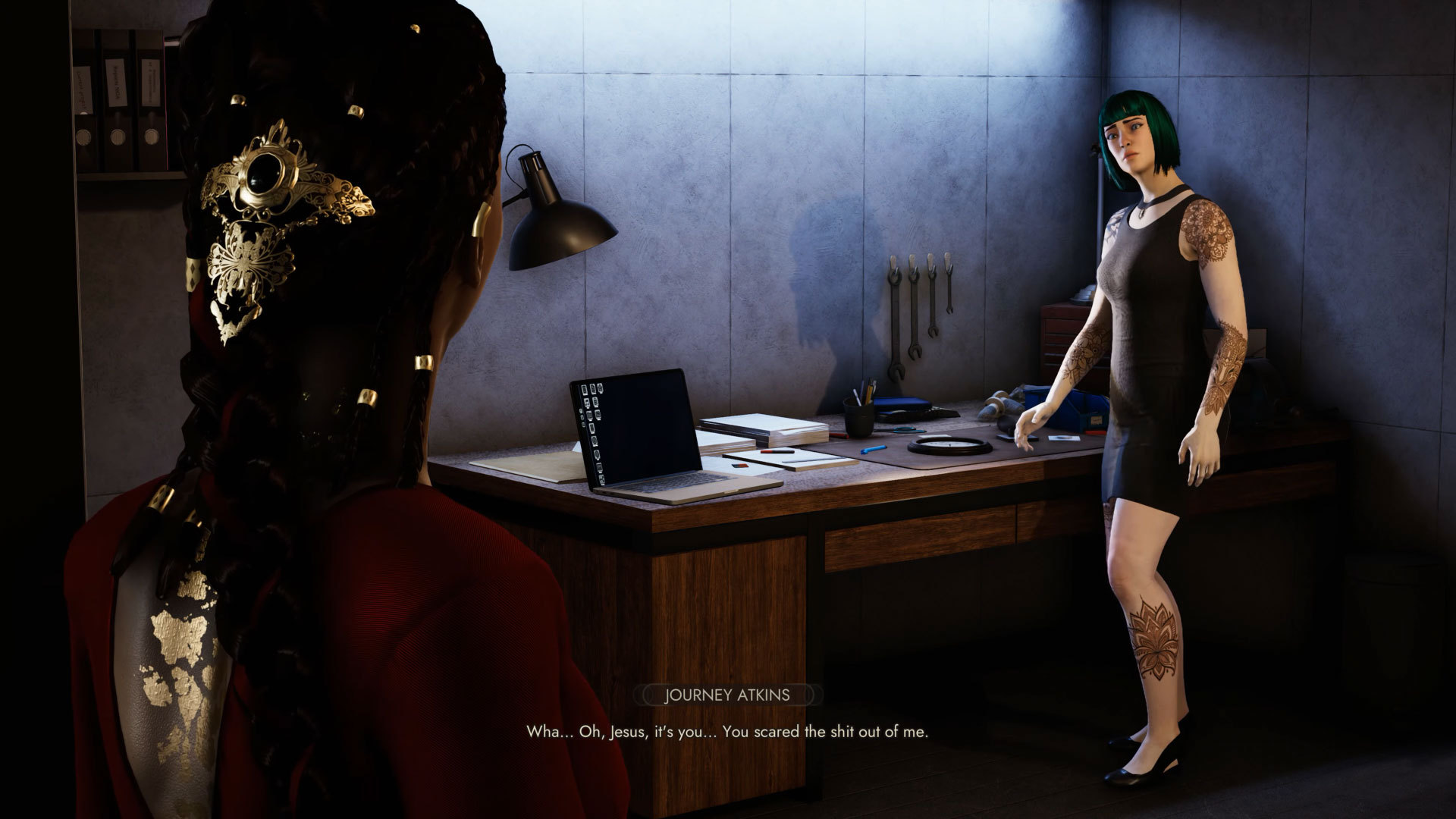
Despite its many flaws, Vampire: The Masquerade - Swansong somewhat lives up to its central promise: to provide players with a wealth of decision-making opportunities and the repercussions and outcomes of those decisions. You will always feel compelled to give it a go, even though it will require you to endure some of its less elegant aspects.
As soon as the credits have finished rolling, we must repeatedly play specific scenes to uncover new circumstances and discover the results of certain significant events. You will always feel compelled to give it a go, although doing so will require you to endure some of its less elegant aspects.
Senior Editor, NoobFeed
Verdict
Vampire: The Masquerade - Swansong somewhat lives up to its central promise: to provide players with a wealth of decision-making opportunities and the repercussions and outcomes of those decisions.
60
Related News
No Data.

